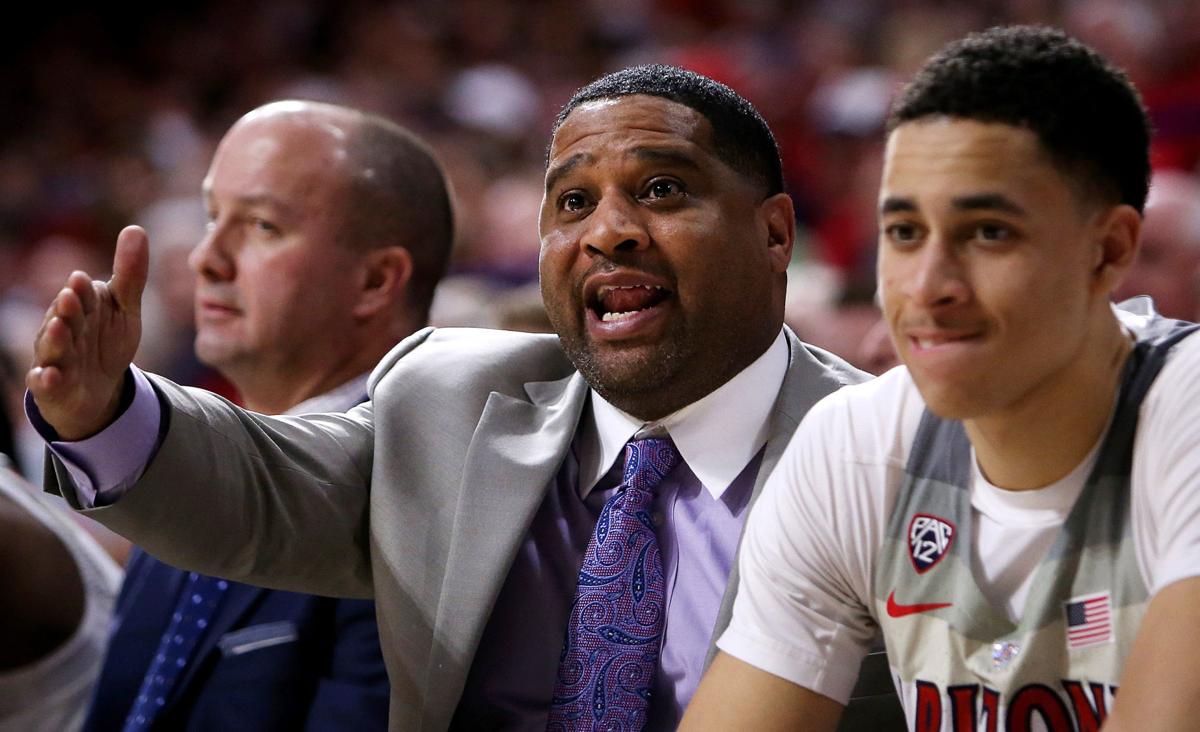A federal judge is cracking down on leaks in the bribery case involving former Arizona Wildcats assistant basketball coach Emanuel “Book” Richardson after several news reports cited information that the government says is confidential.
Richardson, one of four assistant coaches named in the federal complaint, is facing multiple bribery and fraud charges. He is charged with accepting money to secure at least one recruit for Arizona.
If convicted on all charges, he could spend up to 60 years in prison and be saddled with $1.5 million in fines.
The court’s Feb. 28 hearing came five days after Yahoo Sports and ESPN released stories that quoted pretrial evidence, including a purported wiretap.
The ESPN story said Arizona coach Sean Miller and sports agent Christian Dawkins discussed a $100,000 payment to Deandre Ayton, the Wildcats’ freshman star.
One of the Yahoo Sports stories detailed how Dawkins exerted control over top recruits — and, by extension, power programs like Arizona. Former UA assistant Joe Pasternack was mentioned at length in the Yahoo story.
Neither Miller, Ayton or Pasternack have been charged with any crimes.
In the Feb. 28 meeting, Assistant U.S. Attorney Edward Diskant told U.S. District Judge Edgardo Ramos that the discovery materials mentioned in Yahoo’s story could have been leaked only by someone who was directly involved in defending or prosecuting the case. Diskant said the documents posted in Yahoo’s story bore a stamp that could have come only from an attorney involved.
“We have not provided any of this material to anyone else who is not a party to the case,” Diskant, the federal government’s attorney, said.
“So the only people who could possibly have access to the documents provided to Yahoo Sports are the attorneys for the government and their support staff and the attorneys for the defendants and their support staff.”
Diskant said the government attempted to interview “every single member” of the U.S. attorney’s investigative team and found no reason to believe the leak came from within the office.
“That only leaves defense counsel,” Diskant said, explaining that the government thinks the defendants “believe it to be in their advantage to highlight for the public the fact that ... money changes hands improperly in college sports has been happening frequently and rampantly and that others are involved, including others who have not yet been charged.”
Jeffrey Lichtman, the attorney representing fired USC assistant Tony Bland, called the government’s theory “frankly ludicrous.” He said the leak of Dawkins’ records hurt his client tremendously.
Diskant denied the information leak was helpful to the government, saying that some of the individuals mentioned in the reports — including Dawkins’ boss, sports agent Andy Miller — are still under investigation.
“It is not helpful to the government to have the material that is subject to an ongoing investigation leaked,” Diskant said.
“But second and far more importantly, there are any number of third parties who have been completely and unfairly maligned by the result of this leak of information, something that the government takes incredibly seriously and would never intentionally do.”
Both Sean Miller and Ayton have denied the claims against them, with Arizona’s coach calling the ESPN report “defamatory.” ESPN has issued multiple corrections to its initial story, but said it stands by its reporting.
On March 6, Ramos — the federal judge — submitted the amended protective order, with two new paragraphs.
The new order says that “any material the government designates, or previously has designated” confidential information will not be released to the public, according to court records.
Ramos also added language saying that any material that the government “in good faith believes could jeopardize any ongoing criminal investigation” or affect the likelihood of a fair trial is also restricted. Defendants have to right to object to information that the government deems confidential.
The judge and attorneys discussed the leaks in a previous hearing.
During their Feb. 15 meeting, Assistant U.S. Attorney Noah Solowiejczyk told the court that there had “been a couple instances in the last month” where information from the case had been leaked to the press.





